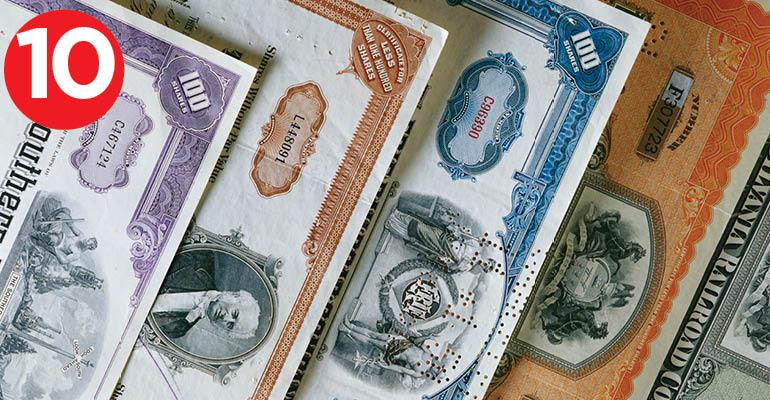- Fed Ramps Up Repo Operations to Address Disruptions in Treasury Market “The New York Fed increased the size of its repurchasing operations on Thursday in order to address the "highly unusual" disruptions in Treasurys markets. It said it would offer $500 billion in a three-month repo operation on both Thursday and Friday. It also said it would offer $500 billion in a one-month repo operation tomorrow. The New York Fed added it would conduct one-month and three-month operations for $500 billion every week for the remainder of the month.” (MarketWatch)
- Trump’s Payroll Tax Cut Would Dwarf 2008 Bailout “Almost overnight, President Trump has gone from insisting the economy would not need fiscal help to weather the coronavirus to proposing a stimulus plan that would cost more than the 2008 Wall Street bank bailout or the 2009 stimulus bill aimed at digging the United States out of a deep recession. The centerpiece of Mr. Trump’s stimulus proposal, which remains a work in progress, is a temporary tax cut that by itself would add nearly $1 trillion to the national debt: a suspension of all Social Security payroll taxes through the end of the year.” (Wall Street Journal, subscription required)
- Modell’s to Close All its Remaining Stores After Bankruptcy Filing “Modell’s Sporting Goods, the century-old family-owned sporting goods chain, has filed for Chapter 11 bankruptcy and will be closing its remaining 115 stores. It becomes the latest traditional retailer to succumb to a fast-changing environment. In recent years Payless ShoeSource Corp., Toys R Us and children’s chain Gymboree have filed for Chapter 11 reorganization or liquidated their operations.” (New York Post)
- Healthcare Real Estate Could Be a Coronavirus Safe Haven “It's hard to imagine many stocks will do well through the coronavirus pandemic. But health care stocks and real estate investment trusts tend to be defensive sectors that investors flock to because they pay huge dividend yields. So what happens when you combine the two? Health care REITs might be a good bet in this scary market environment. Many are positioned well to help manage the COVID-19 coronavirus crisis, particularly companies that own and operate hospitals, medical offices and life sciences and biotech facilities.” (CNN Business)
- Homebuilding Stocks Have Their Worst Day Since the Subprime Crisis “Stocks of the nation’s homebuilders are tanking, on pace for their worst day since December 1, 2008, when the subprime mortgage crisis brought the whole housing market to its knees. A combination of factors are weighing on the sector. Mortgage rates fell to a record low last week, but are moving up again this week as lenders try to handle an onslaught of refinance demand. Applications to refinance a home loan jumped 79% in one week, according to the Mortgage Bankers Association.” (CNBC)
- The Bond Bubble May Be Next to Burst “In December 1996 then-Federal Reserve chair Alan Greenspan gave his famous ‘irrational exuberance’ speech, in which he questioned hot stock prices and extended valuations following a bull market that began in the early-1980s. While prices in the dot-com bubble did get out of hand, that irrational exuberance lasted for another three-plus years, finally slowing down in March 2000. From the time of Greenspan's speech until the market peaked just after the turn of the century, stocks would be up nearly 100%.” (Fortune)
- Watt It Takes: Turning Real Estate into Clean-Power Assets “This week on Watt It Takes: Powerhouse CEO Emily Kirsch sits down with Robyn Beavers, the co-founder and CEO of Blueprint Power. Blueprint works with real estate companies to turn their buildings into clean energy power plants. Blueprint developed software that helps building owners optimize their use of co-generation, fuel cells, solar or batteries. Robyn has a long history in the worlds of tech, real estate and energy. She was an early employee at Google, and went on to found the company’s environmental strategy group.” (Greentech Media News)
- How Are Real Estate Investors Reacting to Low Interest Rates? “When we first started our business, there were a few hundred companies that were looking to be crowdfunding platforms. I think people – including us – underestimated what it was going to take to launch this type of business. I think everybody kind of gravely underestimated how much work it was going to take to get eyeballs to a website, to make people comfortable investing even as little as $100 or $1,000 through a website that had very little track record. It was a relatively new concept.” (HousingWire)
- Rubio Wants to Increase Scrutiny of Foreign Home Buyers in Miami with New Legislation “Miami residents are competing for housing with foreign and out-of-state buyers, who are often able to pay cash and above asking price, and their ability to keep pace is dwindling as local wages remain stagnant. In response, Florida Republican Sen. Marco Rubio is introducing a bill that would reduce foreign speculation of residential real estate in urban centers like Miami by increasing the tax rates of real estate sales by foreign investors. And Rubio would combat real estate transactions funded by illicit activity or money laundering by prompting the Treasury Department to report the natural identities of foreign buyers and the source of funds received by the seller.” (Miami Herald)
- Stock Market Value Makes It Harder to Value CRE “On Wednesday, as the World Health Organization declared the coronavirus a pandemic, Wall Street fell into a bear market as the average officially ended its 11-year rally. The Dow Jones industrial fell 20 percent off its previous high, which was set just a month ago. The market has gone through a period of extreme instability in the last few weeks as the news about the confirmed cases of the coronavirus has spread within the US.” (GlobeSt.com)
0 comments
Hide comments





